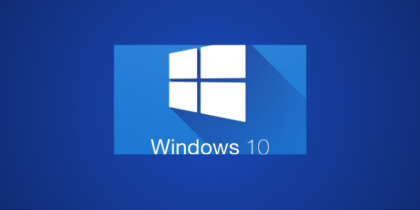If you’ve ever paused before a large money transfer and thought, “is OFX safe?”, you’re asking the right question. With sensitive data constantly circulating on the dark web, assessing trust goes beyond headlines. Below, we will walk you through what happened with OFX, the risks that remain, and how you can stay safe while using any of the platforms online.
What is OFX?
OFX (OFX Group Limited) is a cross-border payments and foreign exchange service used by individuals, small businesses, and enterprises. When you move money via OFX, details like names, bank accounts, transaction records, and personal identifiers go to multiple systems. That’s why people are worried about OFX’s safety. Security for a service like OFX is very important as every failure or leakage, even of non-critical data, can involve risks.
Is OFX Safe for My Data?
Yes, OFX is generally safe to use. The 2023 breach only exposed some email addresses—no passwords or financial data were compromised, but users should remain cautious of phishing attempts targeting those leaked emails.
In September 2023, OFX experienced a minor security breach in which
- Approximately 753 bytes of data were exposed,mostly user email addresses.
- The intrusion stemmed from a Telegram chat application exploitation.
- There is no evidence that passwords, banking credentials, or other financial data were compromised.
- Nonetheless, the exposure of email addresses can be leveraged in phishing or targeted identity attacks.
Given this, when you think is OFX as safe, you must also take into account the previous history.
One of the key dangers after any breach is the later circulation of leaked data on the dark web. Cybercriminals often compile email lists, match them with other breached sources, and launch credential stuffing, phishing, or spear-phishing campaigns.

When data ends up on the dark web, it can be aggregated, resold, or used as fodder for attacks. So even though the original breach was limited, it raises the question about OFX’s safety. Thus, evaluating OFX is safe also means assessing how well OFX detects misuse, contains leaks, and alerts customers, not just how much data was stolen.
Is OFX Safe After the Breach?
After the incident, OFX stepped up its security posture. Some of the measures are:
- Collaboration with leading cybersecurity firms such as CrowdStrike to improve intrusion detection and response.

- Use of layered, behavior-based threat detection systems (detecting suspicious patterns, not just perimeter breaches).
- Ongoing, continuous vulnerability scanning and patching cycles.
- Better internal processes, monitoring, and Kafka-style real-time alerting for anomalous activity.
- Public transparency, OFX has published updates and statements about security and response.
These changes help tilt the balance toward a more yes when you ask is OFX safe, but they don’t eliminate risk entirely.

- Read: Is Venmo Safe to use?
How You Can Protect Yourself While Using OFX
Even when OFX is safe, you don’t have to be passive. Here’s what you can and should do:
- Use strong, unique passwords (never reuse across services).
- Enable MFA (Multi-Factor Authentication) on your OFX account and all linked services.
- Monitor your email carefully, because your address was the exposed vector. Be alert to phishing attempts.
- Limit exposure and avoid keeping large sums stored; move funds promptly.
- Keep your devices & software patched and up to date, vulnerabilities often come through outdated systems.
- Use PureVPN, particularly on untrusted networks to help protect your connection and reduce exposure.
- Enable PureVPN Dark Web Alerts to monitor whether your email or personal data shows up in new leaks or dark web listings. That gives you early warning and time to react.
Is OFX Safer than Its Competitors?
Before deciding is OFX safe for your money transfers, it helps to see how it compares with other top players in the industry. The table below breaks down OFX versus its leading competitors.
| Provider | Key Features | Security / Regulation | Best For |
| OFX | Bank-to-bank international transfers, 50+ currencies. | Regulated globally (50+ regulators) including Financial Crimes Enforcement Network (FinCEN) in the US. Uses SSL encryption, MFA & fraud monitoring. | Larger transfers, business & personal, when you want an FX specialist rather than purely peer-to-peer. |
| Wise | Known for transparency of exchange rate (mid-market), supports many currencies. | Licensed in multiple jurisdictions (FCA UK, ASIC Australia etc.). | Smaller transfers, frequent users, cost-sensitive individuals. |
| XE Money Transfer | Large currency support (130+ in some paths), no fee on certain transfers. | Strong reputation, long-established FX business. | Users sending mid to large amounts, wide currency needs. |
| Revolut | Fintech-oriented multi-currency account + transfer service. | End-to-end encryption, virtual cards, regulated in multiple zones. | Tech savvy users, multi-currency wallets & frequent transfers. |
| Western Union | Vast agent network, cash pick-up / bank transfer worldwide. | Strong global regulation and large scale operations. | Remittances, small to medium transfers, locations without bank access. |
What Personal and Financial Data Does OFX Collect and How Is It Used?
OFX collects personal, financial, and device data to provide and secure its money transfer services. This includes names, contact details, dates of birth, identification numbers, and verification documents like passports or driver’s licenses. Financial information such as bank account details, transaction history, and tax records is also gathered to meet anti–money laundering (AML) and compliance requirements. OFX collects device data such as IP addresses, browser type, operating system, and geolocation through cookies and analytics to detect fraud and improve service performance.
Data is collected directly from users during registration, form submissions, or customer support interactions, and automatically when using OFX websites or apps. It may also come from third-party sources, including government databases, credit bureaus, and identity verification services. OFX uses this data to verify identities, process transactions, prevent fraud, and comply with financial laws.
OFX states it does not sell personal data but shares it with affiliates, payment processors, and authorities when required by law. Because OFX operates globally, data may be transferred to countries such as the U.S., U.K., Australia, and Singapore, with contractual safeguards applied where needed. Customer information is retained for up to seven years to meet legal obligations before being deleted or anonymized.
In short, OFX collects extensive personal and financial information mainly for compliance, security, and transaction processing, while limiting data sharing to trusted or legally mandated parties.
Frequently Asked Questions
No, only email addresses, per public disclosures. There’s no evidence of passwords or banking info being exposed.
Yes. Leaked emails may be cross-referenced with other database leaks. Attackers can launch phishing, social engineering, or credential stuffing attacks using them.
Yes, OFX holds required licenses and operates under financial regulation (e.g. money transmitter rules in the U.S.), which imposes compliance and reporting obligations.
Using a VPN with any of your financial services can help you avoid risks by encrypting your connection. PureVPN, in addition to that, monitors whether your email or personal data shows up in leaks. That gives you early warning, enabling action before damage escalates.
It depends on volumes, services, and security preferences. Many reviews suggest OFX is more favorable for larger transfers; Wise is praised for transparency. But, it is always important to stay safe as your data is your asset.
Final Verdict
So, is OFX safe? The answer is yes, but with precautions. The 2023 breach was limited to email addresses, and OFX has since improved its defenses. But safety in practice depends heavily on you, your email hygiene, your use of MFA, your vigilance, and your ability to respond quickly is what you must prioritise.








